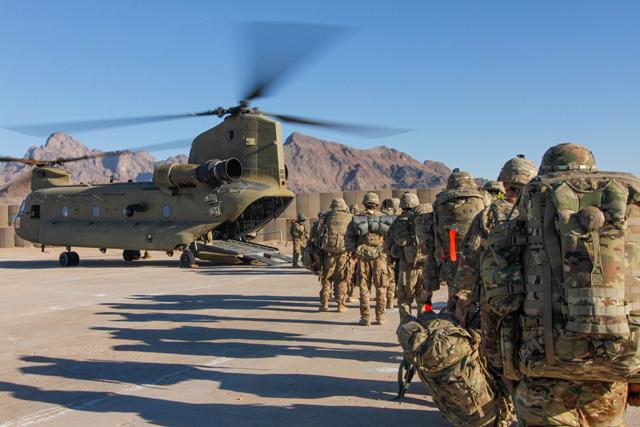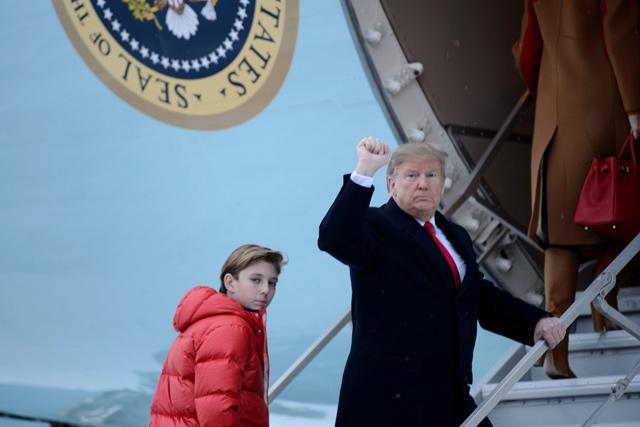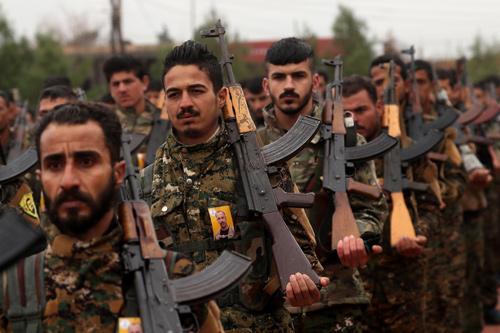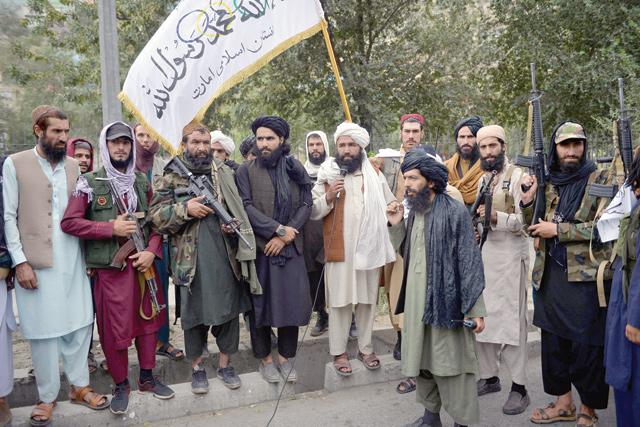You are here
With eye on Afghanistan talks, Trump vows to stop ‘endless wars’
By Reuters - Feb 06,2019 - Last updated at Feb 06,2019

Soldiers attached to the 101st Resolute Support Sustainment Brigade, Iowa National Guard and 10th Mountain, 2-14 Infantry Battalion, load onto a Chinook helicopter to head out on a mission in Afghanistan, on January 15 (Reuters photo)
WASHINGTON — President Donald Trump told Americans on Tuesday his administration had accelerated talks for a political settlement in Afghanistan and would be able to reduce US troops there as negotiations advance to end America’s longest war.
“Great nations do not fight endless wars,” Trump said in his annual State of the Union address to Congress, in which he also said US troops had nearly defeated Daesh militants in Syria and it was time to bring them home.
After 17 years of war in Afghanistan, Trump praised “the unmatched valor” of US forces.
“Thanks to their bravery, we are now able to pursue a possible political solution to this long and bloody conflict,” Trump said.
He said his administration was holding constructive talks with a number of groups, including Taliban militants.
“As we make progress in these negotiations, we will be able to reduce our troop presence and focus on counterterrorism. And we will indeed focus on counterterrorism,” Trump said.
Trump offered no specifics about when he would bring home the 14,000 US troops now in Afghanistan.
US-led forces in 2001 toppled the hardline Taliban for harbouring Al Qaeda militants responsible for the September 11 attacks.
“We do not know whether we will achieve an agreement — but we do know that after two decades of war, the hour has come to at least try for peace,” Trump said.
‘End military presence’
The Taliban, responding to Trump’s speech, rejected any suggestion of a lingering US focus on counterterrorism after troops are drawn down, reiterating their long-held demand that all foreign troops get out.
“At the first step, we want all the foreign forces to leave and end the military presence in our country,” Sohail Shahin, a spokesman for a Taliban office in Qatar, said by telephone.
“But after ending their military presence, their non-military teams can come and... take part in the reconstruction and development process.”
In December, a US official said Trump was planning to withdraw more than 5,000 US troops in Afghanistan, triggering worries about whether a smaller force would be able to fulfill missions under way and stabilise the country.
When he campaigned for president in 2016, Trump said he wanted to focus more on domestic issues than foreign conflicts.
However, Trump’s sudden announcement in December that he would withdraw US forces from Syria alarmed allies and many current and former US officials, who worry that Daesh militants remain a threat.
After the speech, Democratic Representative Eliot Engel, chairman of the House of Representatives Foreign Affairs Committee, said Trump’s Syria plans did not seem well thought out and could put US allies like the Kurds and Israel at risk, while empowering Iran.
“We’ll probably come back at a future date, with much more danger to our troops,” Engel told Reuters.
Earlier on Tuesday, Gen. Joseph Votel, head of the military’s central command, warned that Daesh would pose an enduring threat.
In his address, Trump said Daesh controlled more than 51,799 square kilometres of territory in Iraq and Syria. “Today, we have liberated virtually all of that territory from the grip of these bloodthirsty monsters,” he said.
Related Articles
WASHINGTON — Pushing back against Republican opposition, US President Donald Trump reaffirmed his determination to pull US troops out of ‘‘e
WASHINGTON — President Donald Trump appeared Monday to water down shock plans for an immediate pullout of US troops from Syria, even as he d
KABUL — The Taliban hardliners celebrated their total return to power on Tuesday with gunfire and diplomacy, after the last US troops flew o














